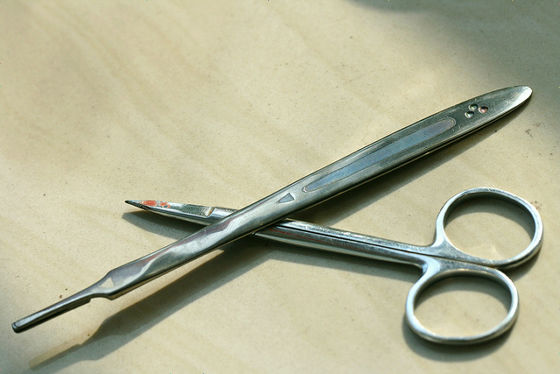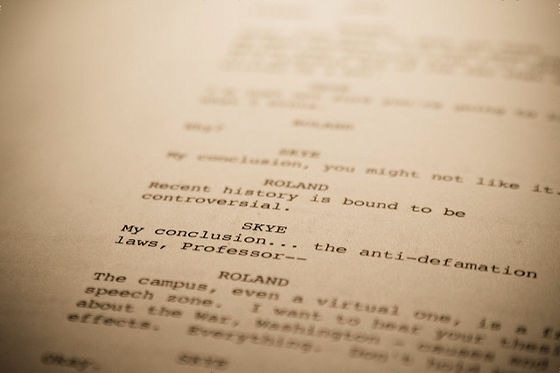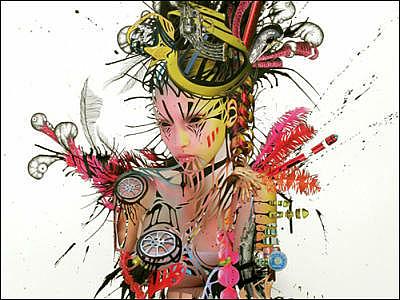What does the title 'Blade Runner' mean?

In the movie ``
Why Is 'Blade Runner' the Title of 'Blade Runner'?
http://www.vulture.com/2017/10/why-is-blade-runner-the-title-of-blade-runner.html

Blade Runner is based on a novel by Philip K. Dick called `` Do Androids Dream of Electric Sheep? '' In the novel, the main character, Rick Deckard, is a police officer and is nicknamed ``Blade Runner.'' It is not. So, where did the word Blade Runner come from? This is because director Ridley Scott came across the work of another novelist while searching for a suitable job name for Deckard.
The first person to coin the term Blade Runner was Alan E. Nurse , a doctor and science fiction writer. Born in 1928 to an engineer father, Nurse attended Rutgers University and served as a medic for a few years before graduating from the University of Pennsylvania's medical school in 1955. He then moved to Washington for medical training.
A nurse who started her career as a doctor, she also had a great passion for writing about the future world and medicine. He has been publishing science fiction novels written since his medical school days in magazines such as Astounding , and after graduating from medical school he published ``Rocket to Limbo'' in 1957 and ``Scavengers in Space'' in 1959. published ``Corrosive Animals''. In 1963, he left his career as a doctor to concentrate on his writing career. However, in 1965, he created a non-fiction work about healing art called ``Intern'', so it seems more accurate to say that he changed his method of expression rather than losing interest in medicine. According to Robert Silverberg , a leading science fiction writer, although Nurse wrote very good novels, these works did not attract attention.
The turning point came in 1974. That was when I published the novel ``The Bladerunner,'' which integrates two elements that nurses are good at: ``medical care'' and ``near future.'' 'The Blade Runner' is set in a near-future America where eugenics is believed. Although universal health insurance exists in the world in the story, in order for 'inferior' humans to receive medical care, it was necessary to undergo sterilization in advance to prevent the production of offspring. As a result, the medical black market has expanded, with businesses selling medical tools behind the scenes, doctors using illegal medical tools to treat people who do not want to be sterilized, and 'transporters' who deliver illegal medical tools to doctors. “Ya” is born. This medical tool included surgical scalpels, so the carrier was called a ``Blade Runner'', meaning ``Runner'' with a ``Blade''.

by
The main character, police officer Billy Gimp, is one of the Blade Runners and delivers medical tools to the doctor. The story is about how Billy and his partner save people while fighting the law during an epidemic, and how universal health insurance based on eugenics changes.
``The Blade Runner'' was an excellent novel as it was written by a former doctor and contained detailed descriptions of medical matters, but due to the explanatory nature of the descriptions, it was not well-received by the general public and was considered a ``forgotten'' novel. It was a work that said, 'It's only a matter of time.' However, as luck would have it, it caught the attention of author William S. Burroughs . According to Wikipedia , Burroughs was a man who 'had no shortage of stories, including accidentally shooting his wife while playing William Tell, and having his little finger stuffed after being dumped by a homosexual man.' At the time, he had returned to New York from Europe, had just broken off his relationship with heroin, and was at a turning point in his life as he tried to make a comeback as a writer. Burroughs acquired the second edition of ``The Blade Runner'' at the end of 1976, and on December 5, his assistant James Grauerhol told his agent that Burroughs ``loved the book so much that he wanted to adapt it for a movie.'' I told them that. Rewriting an existing novel for film was a new endeavor for Burroughs, but about four months later, in March 1977, he finished writing ``The Blade Runner'' with spaces between the words of the original title ``The Blade Runner.'' Masu.

by
Burroughs had said that he would ``modify it for the movie,'' but the finished product was more like a novella than a movie script, and like Burroughs' other works, it was written in highly cryptic prose. I was there. The original work has a milder and rougher feel, and the changes have been made to the extent that ``you can barely see the relationship with the original work,'' and the first half of the work explains how the devastated world was created. The focus is on the plot, and it's only in the middle that the plot becomes clear. Also, unlike the original, the main character Billy is a ``passionate queer '', and in his first scene he is depicted having sex with his male partner.
This work was unsuitable for film in many ways, but one of the biggest obstacles was that it had two endings. It appears that Burroughs intended the endings to be played alternately, or perhaps both endings played simultaneously.
Grauerhol, his assistant, also wrote in July 1977 that no one was interested in the work due to the above points, and in the end Naas took another stab at it, calling it a novel instead of a movie. It will be published in form. At that time, even though there were no plans to make it into a movie, it was named 'Blade Runner: A Movie' to distinguish it from 'The Blade Runner '. .
After that, ``Movie: Blade Runner'' will be stored on the bookshelf of actor and screenwriter Hampton Fancher . Then, in the early 1980s, when director Ridley Scott, screenwriter Michael Deeley, and Fancher were discussing the script for ``Do Androids Dream of Electric Sheep?'' they said, ``We had been thinking about it for months. I can't find an answer, but what kind of professional is Deckard after all?' 'A detective is a detective, but strictly speaking, what kind of detective is he, and what should we call him?' , the name of the job was taken from the movie ``Blade Runner'' that was on Fancher's bookshelf.
Burroughs accepted director Scott's request to borrow the title of the novel. As a result, the name ``Blade Runner'' was given to the film, which had nothing to do with Nurse's ``The Blade Runner'' or Burroughs' ``Movie: Blade Runner,'' and it was released on June 25, 1982. I did.

There is no explanation about what Blade Runner is in the movie, and Fancher said, ``Explanation is a problem in movie scripts, but I try not to explain it in the movie.'' 'I'm doing it,' he says. Nurse passed away in 1992, and Burroughs passed away in 1997, and the ``Blade Runner'' written by these two never caught the attention of many people. ``Runner'' may have been released under a different title and may not have been as successful as it is now.
Related Posts:
in Movie, , Posted by darkhorse_log







